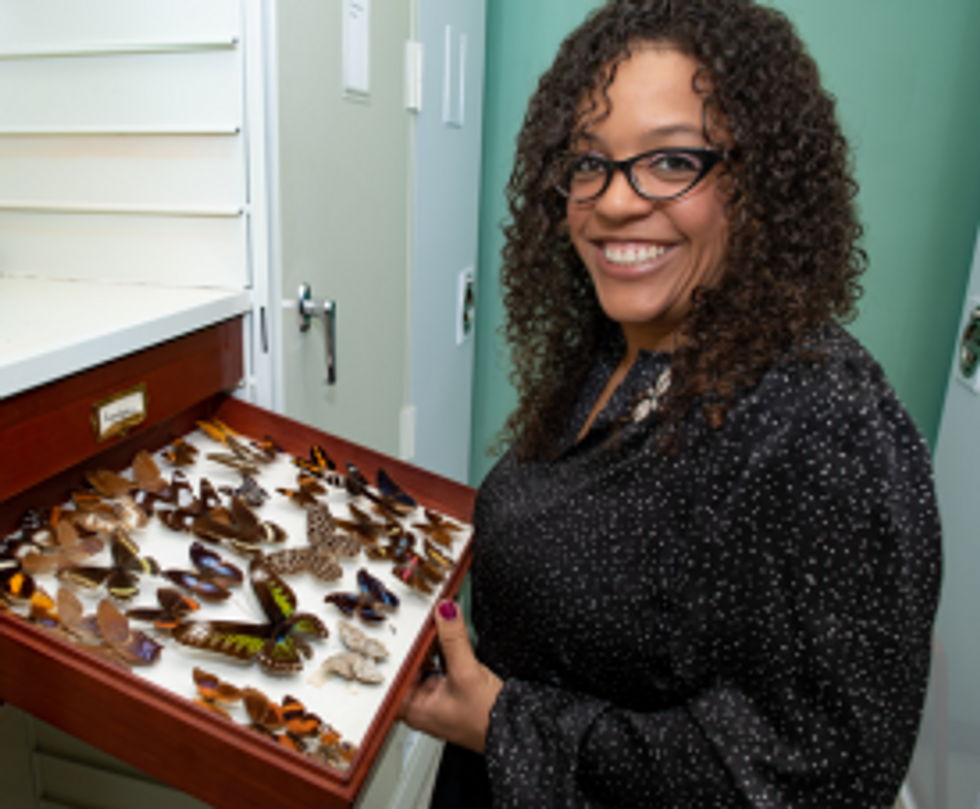How the body's immune resilience affects our health and lifespan

Immune cells battle an infection.
Story by Big Think
It is a mystery why humans manifest vast differences in lifespan, health, and susceptibility to infectious diseases. However, a team of international scientists has revealed that the capacity to resist or recover from infections and inflammation (a trait they call “immune resilience”) is one of the major contributors to these differences.
Immune resilience involves controlling inflammation and preserving or rapidly restoring immune activity at any age, explained Weijing He, a study co-author. He and his colleagues discovered that people with the highest level of immune resilience were more likely to live longer, resist infection and recurrence of skin cancer, and survive COVID and sepsis.
Measuring immune resilience
The researchers measured immune resilience in two ways. The first is based on the relative quantities of two types of immune cells, CD4+ T cells and CD8+ T cells. CD4+ T cells coordinate the immune system’s response to pathogens and are often used to measure immune health (with higher levels typically suggesting a stronger immune system). However, in 2021, the researchers found that a low level of CD8+ T cells (which are responsible for killing damaged or infected cells) is also an important indicator of immune health. In fact, patients with high levels of CD4+ T cells and low levels of CD8+ T cells during SARS-CoV-2 and HIV infection were the least likely to develop severe COVID and AIDS.
Individuals with optimal levels of immune resilience were more likely to live longer.
In the same 2021 study, the researchers identified a second measure of immune resilience that involves two gene expression signatures correlated with an infected person’s risk of death. One of the signatures was linked to a higher risk of death; it includes genes related to inflammation — an essential process for jumpstarting the immune system but one that can cause considerable damage if left unbridled. The other signature was linked to a greater chance of survival; it includes genes related to keeping inflammation in check. These genes help the immune system mount a balanced immune response during infection and taper down the response after the threat is gone. The researchers found that participants who expressed the optimal combination of genes lived longer.
Immune resilience and longevity
The researchers assessed levels of immune resilience in nearly 50,000 participants of different ages and with various types of challenges to their immune systems, including acute infections, chronic diseases, and cancers. Their evaluation demonstrated that individuals with optimal levels of immune resilience were more likely to live longer, resist HIV and influenza infections, resist recurrence of skin cancer after kidney transplant, survive COVID infection, and survive sepsis.
However, a person’s immune resilience fluctuates all the time. Study participants who had optimal immune resilience before common symptomatic viral infections like a cold or the flu experienced a shift in their gene expression to poor immune resilience within 48 hours of symptom onset. As these people recovered from their infection, many gradually returned to the more favorable gene expression levels they had before. However, nearly 30% who once had optimal immune resilience did not fully regain that survival-associated profile by the end of the cold and flu season, even though they had recovered from their illness.
Intriguingly, some people who are 90+ years old still have optimal immune resilience, suggesting that these individuals’ immune systems have an exceptional capacity to control inflammation and rapidly restore proper immune balance.
This could suggest that the recovery phase varies among people and diseases. For example, young female sex workers who had many clients and did not use condoms — and thus were repeatedly exposed to sexually transmitted pathogens — had very low immune resilience. However, most of the sex workers who began reducing their exposure to sexually transmitted pathogens by using condoms and decreasing their number of sex partners experienced an improvement in immune resilience over the next 10 years.
Immune resilience and aging
The researchers found that the proportion of people with optimal immune resilience tended to be highest among the young and lowest among the elderly. The researchers suggest that, as people age, they are exposed to increasingly more health conditions (acute infections, chronic diseases, cancers, etc.) which challenge their immune systems to undergo a “respond-and-recover” cycle. During the response phase, CD8+ T cells and inflammatory gene expression increase, and during the recovery phase, they go back down.
However, over a lifetime of repeated challenges, the immune system is slower to recover, altering a person’s immune resilience. Intriguingly, some people who are 90+ years old still have optimal immune resilience, suggesting that these individuals’ immune systems have an exceptional capacity to control inflammation and rapidly restore proper immune balance despite the many respond-and-recover cycles that their immune systems have faced.
Public health ramifications could be significant. Immune cell and gene expression profile assessments are relatively simple to conduct, and being able to determine a person’s immune resilience can help identify whether someone is at greater risk for developing diseases, how they will respond to treatment, and whether, as well as to what extent, they will recover.
The Friday Five: A surprising health benefit for people who have kids
In this week's Friday Five, your kids may be stressing you out, but research suggests they're actually protecting a key aspect of your health. Plus, a new device unlocks the heart's secrets, super-ager gene transplants and more.
The Friday Five covers five stories in research that you may have missed this week. There are plenty of controversies and troubling ethical issues in science – and we get into many of them in our online magazine – but this news roundup focuses on scientific creativity and progress to give you a therapeutic dose of inspiration headed into the weekend.
Listen on Apple | Listen on Spotify | Listen on Stitcher | Listen on Amazon | Listen on Google
Here are the promising studies covered in this week's Friday Five:
- Kids stressing you out? They could be protecting your health.
- A new device unlocks the heart's secrets
- Super-ager gene transplants
- Surgeons could 3D print your organs before operations
- A skull cap looks into the brain like an fMRI
Can tech help prevent the insect apocalypse?
Declining numbers of insects, coupled with climate change, can have devastating effects for people in more ways than one. But clever use of technologies like AI could keep them buzzing.
This article originally appeared in One Health/One Planet, a single-issue magazine that explores how climate change and other environmental shifts are making us more vulnerable to infectious diseases by land and by sea - and how scientists are working on solutions.
On a warm summer day, forests, meadows, and riverbanks should be abuzz with insects—from butterflies to beetles and bees. But bugs aren’t as abundant as they used to be, and that’s not a plus for people and the planet, scientists say. The declining numbers of insects, coupled with climate change, can have devastating effects for people in more ways than one. “Insects have been around for a very long time and can live well without humans, but humans cannot live without insects and the many services they provide to us,” says Philipp Lehmann, a researcher in the Department of Zoology at Stockholm University in Sweden. Their decline is not just bad, Lehmann adds. “It’s devastating news for humans.
”Insects and other invertebrates are the most diverse organisms on the planet. They fill most niches in terrestrial and aquatic environments and drive ecosystem functions. Many insects are also economically vital because they pollinate crops that humans depend on for food, including cereals, vegetables, fruits, and nuts. A paper published in PNAS notes that insects alone are worth more than $70 billion a year to the U.S. economy. In places where pollinators like honeybees are in decline, farmers now buy them from rearing facilities at steep prices rather than relying on “Mother Nature.”
And because many insects serve as food for other species—bats, birds and freshwater fish—they’re an integral part of the ecosystem’s food chain. “If you like to eat good food, you should thank an insect,” says Scott Hoffman Black, an ecologist and executive director of the Xerces Society for Invertebrate Conservation in Portland, Oregon. “And if you like birds in your trees and fish in your streams, you should be concerned with insect conservation.”
Deforestation, urbanization, and agricultural spread have eaten away at large swaths of insect habitat. The increasingly poorly controlled use of insecticides, which harms unintended species, and the proliferation of invasive insect species that disrupt native ecosystems compound the problem.
“There is not a single reason why insects are in decline,” says Jessica L. Ware, associate curator in the Division of Invertebrate Zoology at the American Museum of Natural History in New York, and president of the Entomological Society of America. “There are over one million described insect species, occupying different niches and responding to environmental stressors in different ways.”

Jessica Ware, an entomologist at the American Museum of Natural History, is using DNA methods to monitor insects.
Credit:D.Finnin/AMNH
In addition to habitat loss fueling the decline in insect populations, the other “major drivers” Ware identified are invasive species, climate change, pollution, and fluctuating levels of nitrogen, which play a major role in the lifecycle of plants, some of which serve as insect habitants and others as their food. “The causes of world insect population declines are, unfortunately, very easy to link to human activities,” Lehmann says.
Climate change will undoubtedly make the problem worse. “As temperatures start to rise, it can essentially make it too hot for some insects to survive,” says Emily McDermott, an assistant professor in the Department of Entomology and Plant Pathology at the University of Arkansas. “Conversely in other areas, it could potentially also allow other insects to expand their ranges.”
Without Pollinators Humans Will Starve
We may not think much of our planet’s getting warmer by only one degree Celsius, but it can spell catastrophe for many insects, plants, and animals, because it’s often accompanied by less rainfall. “Changes in precipitation patterns will have cascading consequences across the tree of life,” says David Wagner, a professor of ecology and evolutionary biology at the University of Connecticut. Insects, in particular, are “very vulnerable” because “they’re small and susceptible to drying.”
For instance, droughts have put the monarch butterfly at risk of being unable to find nectar to “recharge its engine” as it migrates from Canada and New England to Mexico for winter, where it enters a hibernation state until it journeys back in the spring. “The monarch is an iconic and a much-loved insect,” whose migration “is imperiled by climate change,” Wagner says.
Warming and drying trends in the Western United States are perhaps having an even more severe impact on insects than in the eastern region. As a result, “we are seeing fewer individual butterflies per year,” says Matt Forister, a professor of insect ecology at the University of Nevada, Reno.
There are hundreds of butterfly species in the United States and thousands in the world. They are pollinators and can serve as good indicators of other species’ health. “Although butterflies are only one group among many important pollinators, in general we assume that what’s bad for butterflies is probably bad for other insects,” says Forister, whose research focuses on butterflies. Climate change and habitat destruction are wreaking havoc on butterflies as well as plants, leading to a further indirect effect on caterpillars and butterflies.
Different insect species have different levels of sensitivity to environmental changes. For example, one-half of the bumblebee species in the United States are showing declines, whereas the other half are not, says Christina Grozinger, a professor of entomology at the Pennsylvania State University. Some species of bumble bees are even increasing in their range, seemingly resilient to environmental changes. But other pollinators are dwindling to the point that farmers have to buy from the rearing facilities, which is the case for the California almond industry. “This is a massive cost to the farmer, which could be provided for free, in case the local habitats supported these pollinators,” Lehmann says.
For bees and other insects, climate change can harm the plants they depend on for survival or have a negative impact on the insects directly. Overly rainy and hot conditions may limit flowering in plants or reduce the ability of a pollinator to forage and feed, which then decreases their reproductive success, resulting in dwindling populations, Grozinger explains.
“Nutritional deprivation can also make pollinators more sensitive to viruses and parasites and therefore cause disease spread,” she says. “There are many ways that climate change can reduce our pollinator populations and make it more difficult to grow the many fruit, vegetable and nut crops that depend on pollinators.”
Disease-Causing Insects Can Bring More Outbreaks
While some much-needed insects are declining, certain disease-causing species may be spreading and proliferating, which is another reason for human concern. Many mosquito types spread malaria, Zika virus, West Nile virus, and a brain infection called equine encephalitis, along with other diseases as well as heartworms in dogs, says Michael Sabourin, president of the Vermont Entomological Society. An animal health specialist for the state, Sabourin conducts vector surveys that identify ticks and mosquitoes.
Scientists refer to disease-carrying insects as vector species and, while there’s a limited number of them, many of these infections can be deadly. Fleas were a well-known vector for the bubonic plague, while kissing bugs are a vector for Chagas disease, a potentially life-threatening parasitic illness in humans, dogs, and other mammals, Sabourin says.
As the planet heats up, some of the creepy crawlers are able to survive milder winters or move up north. Warmer temperatures and a shorter snow season have spawned an increasing abundance of ticks in Maine, including the blacklegged tick (Ixodes scapularis), known to transmit Lyme disease, says Sean Birkel, an assistant professor in the Climate Change Institute and Cooperative Extension at the University of Maine.
Coupled with more frequent and heavier precipitation, rising temperatures bring a longer warm season that can also lead to a longer period of mosquito activity. “While other factors may be at play, climate change affects important underlying conditions that can, in turn, facilitate the spread of vector-borne disease,” Birkel says.
For example, if mosquitoes are finding fewer of their preferred food sources, they may bite humans more. Both male and female mosquitoes feed on sugar as part of their normal behavior, but if they aren’t eating their fill, they may become more bloodthirsty. One recent paper found that sugar-deprived Anopheles gambiae females go for larger blood meals to stay in good health and lay eggs. “More blood meals equals more chances to pick up and transmit a pathogen,” McDermott says, He adds that climate change could reduce the number of available plants to feed on. And while most mosquitoes are “generalist sugar-feeders” meaning that they will likely find alternatives, losing their favorite plants can make them hungrier for blood.
Similar to the effect of losing plants, mosquitoes may get turned onto people if they lose their favorite animal species. For example, some studies found that Culex pipiens mosquitoes that transmit the West Nile virus feed primarily on birds in summer. But that changes in the fall, at least in some places. Because there are fewer birds around, C. pipiens switch to mammals, including humans. And if some disease-carrying insect species proliferate or increase their ranges, that increases chances for human infection, says McDermott. “A larger concern is that climate change could increase vector population sizes, making it more likely that people or animals would be bitten by an infected insect.”
Science Can Help Bring Back the Buzz
To help friendly insects thrive and keep the foes in check, scientists need better ways of trapping, counting, and monitoring insects. It’s not an easy job, but artificial intelligence and molecular methods can help. Ware’s lab uses various environmental DNA methods to monitor freshwater habitats. Molecular technologies hold much promise. The so-called DNA barcodes, in which species are identified using a short string of their genes, can now be used to identify birds, bees, moths and other creatures, and should be used on a larger scale, says Wagner, the University of Connecticut professor. “One day, something akin to Star Trek’s tricorder will soon be on sale down at the local science store.”
Scientists are also deploying artificial intelligence, or AI, to identify insects in agricultural systems and north latitudes where there are fewer bugs, Wagner says. For instance, some automated traps already use the wingbeat frequencies of mosquitoes to distinguish the harmless ones from the disease-carriers. But new technology and software are needed to further expand detection based on vision, sound, and odors.
“Because of their ubiquity, enormity of numbers, and seemingly boundless diversity, we desperately need to develop molecular and AI technologies that will allow us to automate sampling and identification,” says Wagner. “That would accelerate our ability to track insect populations, alert us to the presence of new disease vectors, exotic pest introductions, and unexpected declines.”


